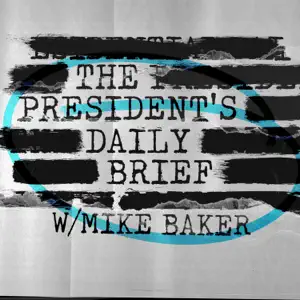Marty Makary is a professor at the Johns Hopkins School of Medicine and Carey Business School and author of the forthcoming book “Blind Spots: When Medicine Gets It Wrong, and What It Means for Our Health”
For years, the price of an operation at my hospital has been radically different depending on the floor where it’s performed. Why? One spot was designated a hospital space; the other a non-hospital space. Patients were sometimes ushered to the location that generated the biggest profit based on their insurance type.
It makes no sense, but our government created this crazy game. Instead of simply paying a fixed amount per procedure, Medicare pays hospitals multiples more than non-hospital surgery centers and doctor’s offices.
The result: Doctors are selling their practices to hospitals to make them more lucrative. The profits, in turn, enable hospitals to gobble up more competition — a self-licking ice cream cone creating monopolies and driving up prices.
This two-tiered payment system is a quintessential example of how today’s health-care interests are exploiting government policy to make millions of dollars off the backs of everyday Americans.
Consider the plight of Kyunghee Lee. For years, the retired Ohio dry cleaner had been receiving annual $30 injections to relieve her arthritis. But when her doctor’s office moved up a single floor, her bill increased more than tenfold, NPR reported. That’s because one of Ohio’s largest hospital systems had acquired her physician’s practice, so her routine injection now came with a $1,262 facility fee. Medicare paid most of the $1,394 bill, but Lee was responsible for $354.
Infuriating, right? It’s also entirely fixable. In December, the House passed legislation requiring “site-neutral” payment for drug infusions. But the Senate, facing opposition from the powerful hospital lobby, has failed to take it up.
For instance, most nonprofit large hospitals are paid millions of dollars through the government’s 340B drug program, intended to lower drug costs for low-income populations. Hospitals are also paid big bonuses by Medicare for training residents (even though residents are cheap labor and arguably save hospitals money). Moreover, both Medicare and Medicaid provide direct compensation to hospitals for uninsured patients and extra bonuses to rural or critical access hospitals. Hospitals are also showered with philanthropic donations that smaller centers don’t get. And outside of emergency care, hospitals today generally refuse to do elective surgery or drug infusions on uninsured patients.
Switching to site-neutral payment would help rein in medical bills at a time when Americans are getting crushed by them and need relief. Twenty percent of U.S. households have medical debt, the Consumer Financial Protection Bureau reports, a problem that disproportionately affects Black and Hispanic communities. And as an analysis by Peterson and KFF shows, 64 percent of people with medical debt admit delaying or avoiding medical care altogether for financial reasons.
The reform would also save a lot of money. In 2021, the Committee for a Responsible Federal Budget calculated that if Medicare began paying for all services in a site-neutral way, the program would save $153 billion over the next decade. This would go a long way toward addressing the imminent insolvency of the Medicare trust fund.
Ironically, the reform might even improve quality of care. For many common operations, surgery centers or community infusion centers are more likely to be managed by a small group of physicians. That means they are less likely to be mired in bureaucracy and loaded with committees and administrators focused on unrelated issues. (This partly explains the recent exodus of doctors to non-hospital settings.)
Given all the benefits to site-neutral payments, it’s no surprise the reform has bipartisan support. In April, former health and human services secretaries from both the Obama and Trump administrations stated strong support for the drug infusion measure awaiting action in the Senate.
Bipartisan groups in the House and Senate have also signaled openness to go much broader: One bill, the Site-based Invoicing and Transparency Enhancement Act, would ban hospitals from overcharging for services provided at off-campus outpatient facilities. Only the hospital lobby stands in the way.
Lawmakers passing site-neutral payment reform would send a strong message to hospital administrators: Stop moving patients to hospital-owned spaces simply to make more money. Paying radically different prices for the same procedure is a self-inflicted wound. Patients shouldn’t have to pay for it.






